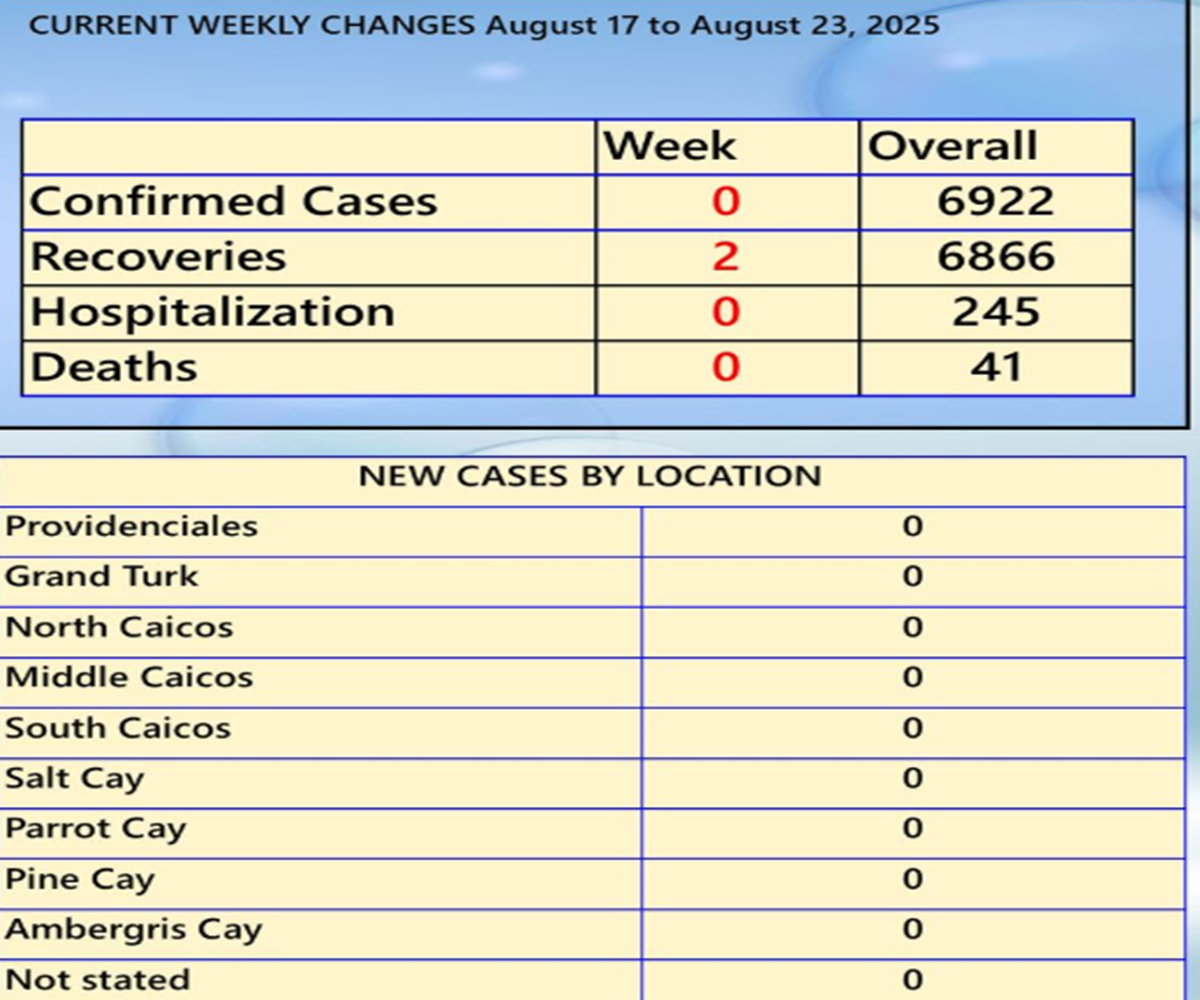World Obesity Day, March 2025
March 4 is recognised as World Obesity Day, with the theme “Changing Systems: Healthier Lives.” This theme is a significant call to action for governments, healthcare institutions, and communities to confront one of our time’s most critical health challenges. Obesity has emerged as a global epidemic, and the Caribbean region is not exempt from its impact.
Despite positive developments, the region continues to face considerable obstacles in reversing trends that place millions at risk for the development of non-communicable diseases (NCDs), including diabetes, hypertension, and cardiovascular disease. To create a meaningful and lasting impact on public health, we must assess where we are today, celebrate our achievements, and strategically reinforce our systems.
The Caribbean’s Chronic Struggle with Obesity
Obesity has been rising at an alarming rate in the Caribbean, with many countries in the region experiencing a sharp increase in persons living with overweight and obesity across all age groups. According to the Caribbean Public Health Agency (CARPHA), over 50% of adults in the region are categorized as overweight or obese, and childhood obesity has more than doubled in the last three decades. As of 2022, 8.6% of children under five in Latin America and the Caribbean were overweight, surpassing the global average of 5.6%. This trend has been escalating, with the region experiencing a 1.2 percentage point increase between 2012 and 2022, compared to a 0.1 percentage point rise globally. The burden of obesity-related illnesses continues to strain our fragile healthcare systems, reducing productivity and increasing premature mortality.
This surge in obesity is attributed to several factors, including the widespread availability of ultra-processed products, decreased physical activity (PA), and socioeconomic disparities that limit access to healthy food options and safe recreational spaces. These elements contribute to obesogenic environments, particularly in urban areas where more than 81% of the population resides. Despite these challenges, there are some promising efforts.
Signs of Progress: The Good Things We’re Seeing
Several Caribbean nations, NGOs, and health agencies have launched initiatives to combat obesity and promote healthier lifestyles. Among these successes:
School Nutrition Policies
- In 2022, Barbados approved the National School Nutrition Policy (NSNP), representing a significant advancement in efforts to combat childhood obesity. The subsequent launch of this policy in 2023 demonstrates the island’s commitment to implementing structured nutritional guidelines within educational institutions. Similarly, Trinidad and Tobago (2017) implemented a ban on the sale of sugar-sweetened beverages in primary and secondary schools. These frameworks enhance the nutritional quality of school meals by establishing dietary guidelines. Many other countries like Jamaica and Grenada are pursuing similar policies as advocates continue to seek a better Caribbean food environment. By integrating nutrition-focused policies within educational settings, these initiatives aim to instill lifelong healthy eating habits from an early age.
- Increased Awareness Campaigns
- Governments and NGOs have intensified their public health campaigns to raise awareness about obesity and the vital benefits of active living. Leveraging social media, television, and community outreach, these initiatives are reshaping health perspectives across the region. Notably, Jamaica’s Jamaica Moves Campaign, launched in 2017, Dominica’s Fit for Life Campaign, which began in 2020 and the 2024 Caribbean Moves initiative stand as powerful testament to this commitment, effectively encouraging citizens to embrace regular PA, nutritious eating habits, and routine health screenings.
Legislation and Advertising
- The Caribbean has been slow to adopt clear food labelling and strict regulations on the marketing of unhealthy foods targeted at children. Nevertheless, some member states have taken significant steps in this area. Barbados, for instance, introduced a 10% excise tax on sugar-sweetened beverages in 2015, and increased it to 20% in 2022, to decrease consumption and encourage healthier choices. Following suit, Jamaica and Grenada established the Sugar-Sweetened Beverage (SSB) Restrictions in Schools in 2019 and 2020 respectively, which imposed limits on the sugar content of beverages available in educational institutions, promoting the adoption of healthier alternatives.
Community-Based Wellness Initiatives
- The rise of community-driven wellness programs has encouraged participation in healthier habits at the local and national levels. Saint Lucia’s National Physical Activity Program (2017) encourages exercise through community fitness sessions and the development of walking trails. The Bahamas’ Healthy Lifestyles Initiative (2018) enhances this effort by offering nutrition workshops, fitness classes, and community gardens to improve access to healthy food. Additionally, the Medical Benefits Scheme of Antigua and Barbuda implements community-based events that aim to raise awareness regarding NCDs while providing opportunities for increased levels of physical activity (PA). Ultimately seeking to promote informed health choices and enhance the overall well-being of communities.
Multilateral Agencies, NGOs, and Government Partnerships
- Obesity prevention in the Caribbean has progressed due to the collaboration of governments, NGOs, and international agencies. From the Healthy Caribbean Coalition’s Childhood Obesity Prevention Action Plan (2017-2021) which has been instrumental in engaging civil society to address this health issue and the CARPHA Six-Point Policy Package in 2019. To the Creative Play Initiative in Barbados (2024), developed by the Pan American Health Organization (PAHO) with the Ministry of Health and Wellness, which promotes PA in schools. These and other programs such as the Reversing the Rise in Childhood Obesity Project (2017-2020) in Saint Lucia and Grenada have focused on reducing obesogenic environments through policy reforms and educational efforts, encouraging healthier choices in communities. While progress has been made, continued investment in preventative strategies remains crucial to reversing obesity trends in the region.
Strengthening Our Systems for Greater Impact
For the Caribbean to see a significant and lasting reduction in obesity rates, we must move beyond isolated programs and create sustainable frameworks that integrate health into every aspect of society. Here’s how we can strengthen our systems:
- Enhancing Policy Implementation and Enforcement – Policies like school nutrition policy must be enforced strictly, with harsh penalties for non-compliance, in addition to being adopted. Taxing sugar-sweetened drinks and offering subsidies for locally grown, fresh fruit are two bold measures that governments must adopt. This two-pronged strategy will enable communities to make better decisions and ensure that everyone has access to wholesome food.
- Strengthening Primary Healthcare Systems – Prevention and management must become the cornerstones of our primary
 healthcare systems if we are to effectively tackle obesity. We need to increase access to bariatric services, fund aggressive early intervention programs, and make large investments in nutrition counselling.
healthcare systems if we are to effectively tackle obesity. We need to increase access to bariatric services, fund aggressive early intervention programs, and make large investments in nutrition counselling.
- Integrating Physical Activity into Daily Life – Urban planning must prioritize the development of safe and inviting green spaces, walking paths, and recreational facilities. We should mandate daily physical education in schools and implement workplace wellness policies that actively encourage movement throughout the day. By embedding PA into our daily routines, we foster a culture of health and vitality.
- Expanding Food Security and Access to Healthy Choices – The Caribbean must champion sustainable agriculture to reduce our reliance on imported processed foods. Strengthening partnerships among farmers (including young agripreneurs), manufacturers, retailers, and governments is essential to guarantee that nutritious foods are not only available but also affordable for all citizens. This collaborative effort will lay the groundwork for a healthier future.
- Education and Behaviour Change – To effectively transform cultural attitudes toward food and PA, we must weave health education into the very fabric of school curricula. Launching powerful media campaigns that normalize balanced lifestyles, coupled with leveraging digital platforms to enhance health literacy, will profoundly influence societal norms and inspire meaningful behaviour change. Together, we can shift mindsets and create a healthier, more vibrant Caribbean.
Where Do We Go From Here?
The Caribbean stands at a defining moment in the fight against obesity. If we choose to maintain the status quo, we are inevitably heading toward skyrocketing healthcare costs and a significant decline in our quality of life. However, by investing in the strengthening of our systems today, we can pave the way for a healthier, more productive region for generations to come. Achieving this vision demands unwavering collaboration between governments, private sector leaders, and community organizations, all united in the pursuit of prioritizing health in every aspect of our lives.
As we commemorate World Obesity Day 2025, let us issue a powerful call to action for our leaders, healthcare professionals, and citizens to embrace real, systemic change. A healthier Caribbean is within our grasp, but it will only become a reality if we boldly take the necessary steps to fortify our systems and champion the well-being of our people. Together, we can transform our future and create a thriving Caribbean region.
About the Author
Offniel Lamont is the Physiotherapist at the G.C. Foster College of Physical Education and Sport. He holds a Masters degree from University College London (UCL) in Sports Medicine, Exercise, and Health whose focus area is leveraging exercise as a powerful tool in the prevention and treatment of sports injuries and NCDs. Lamont’s commitment also extends to empowering Caribbean youth as a dedicated advocate within the Healthy Caribbean Coalition.


 TCI News6 days ago
TCI News6 days ago
 Government6 days ago
Government6 days ago
 TCI News1 week ago
TCI News1 week ago
 Independent writer6 days ago
Independent writer6 days ago













